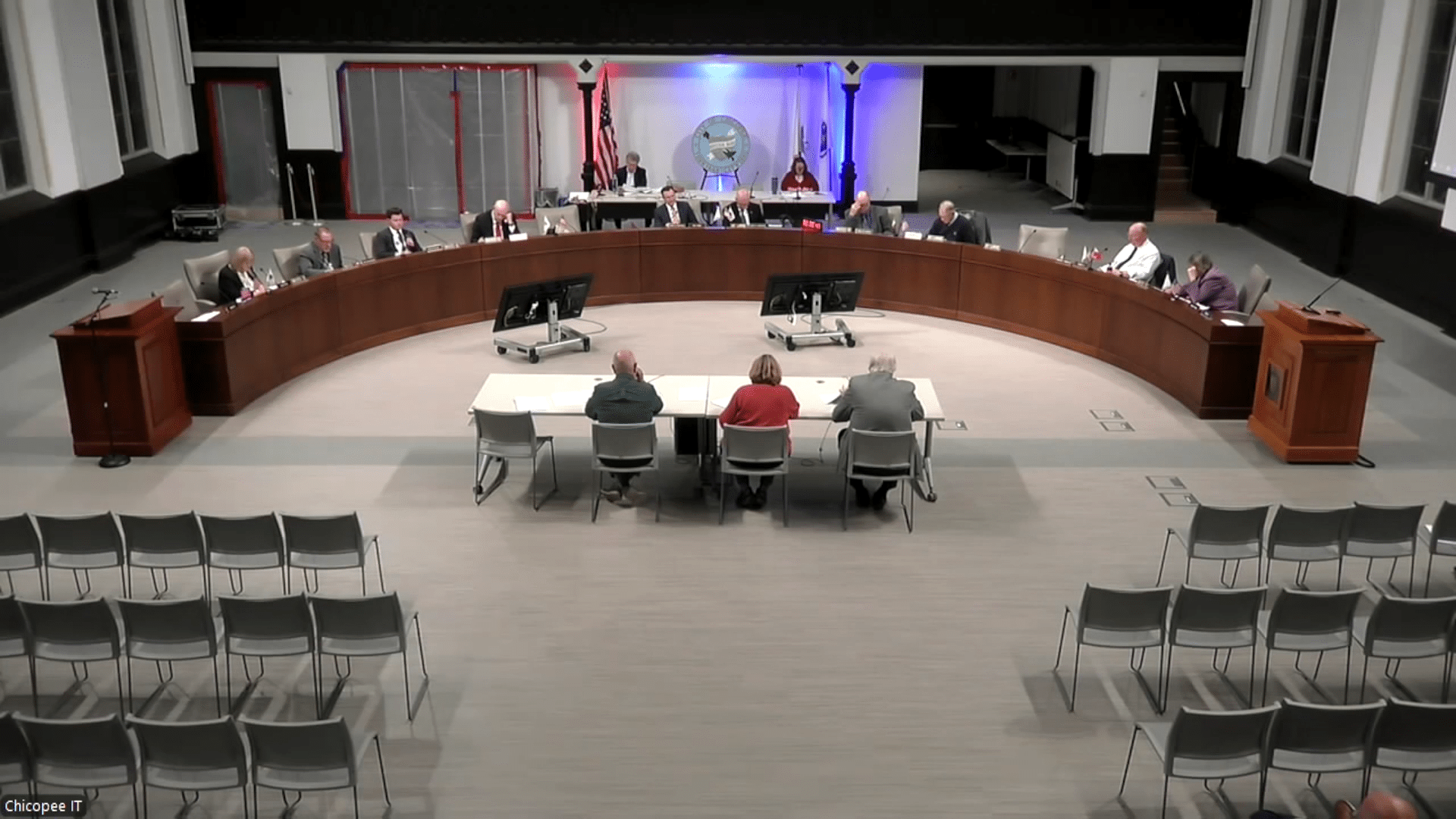Chicopee city assessors meet with the City Council to determine a tax rate and commercial rate during a public hearing on Nov. 6
Photo credit: ChicopeeTV
CHICOPEE — During a Nov. 6 meeting, the Chicopee City Council officially accepted a fiscal year 2026 residential tax rate of $15.24 per $1,000, a $.08 increase from the FY25 rate.
With the new tax rate, the average single-family tax bill will increase from $4,305 to $4,580, an average increase of $275.
Home assessments continue to increase, according to Chicopee’s Board of Assessors Chairman Laura McCarthy. She noted that the average value of a single-family home has increased from $283,971 to $300,531.
The City Council also had to vote on a residential factor, or a commercial shift. Each municipality is given the option to select a residential factor, which determines the percentages of tax to be borne by each class of property.
The council also approved a split rate and a maximum commercial shift of 1.75%, as well as a residential factor of 0.82%.
The new residential factor shifts the tax burden from the residential property owners to the commercial property owners.
The City Council also approved a commercial rate of $32.60 per $1,000 compared to $32.62 per $1,000 in FY25.
Jason Reed, from the Chicopee Boys and Girls Club, talked during public input on behalf of the Chicopee Chamber of Commerce. He encouraged councilors to pick a shift that would help the small businesses in the city.
“The balance you strike between the residential and commercial tax rates has a direct effect on our city’s ability to attract, retain and grow local businesses and residents alike. Chicopee’s commercial and industrial sectors are the backbone of local employment and investment. Yet as the tax burden on these properties remain high, it limits reinvestment capacity, discourages new development and places strain on small businesses already managing tight margins,” he said.
Based on the presentation, the total tax levy growth in FY24 was $1,775,210 but decreased to $819,035 in FY25.
In FY26, the total tax levy growth is estimated to increase to $1.17 million. McCarthy said Chicopee added nine new houses, six of which were gutted and improved and three of which had additions, including two new in-ground pools and five two-family homes. One three-family house was also improved, according to McCarthy.
At a June City Council meeting, Mayor John Vieau and the City Council appropriated $3 million from free cash to reduce the tax levy, which is the amount to be raised from taxes to balance the city’s budget spending.
The appropriation helped reduce the amount that the residents would have had to pay in taxes.
Comparing the tax rate to surrounding communities in FY25, Chicopee has one of the lowest residential tax rates. They also have the second lowest tax bill, right behind Springfield.
The City Council also voted “no” on the residential, small commercial and open space exemptions.
McCarthy said these have historically not been adopted by the city.
She explained, “There are a lot of communities by the Cape so that the people who live there year round are getting a discount on their taxes. The people who have second properties, rental properties do not. It really would not apply in the city of Chicopee because most of our property are homeowners.”
Vieau sent a letter to the City Council that said residential and commercial exemptions provide insignificant tax relief to existing property owners and act as a disadvantage to business owners of housing complexes.
Vieau said, “It is my opinion that neither of these measures is relevant to conditions in Chicopee and would not be beneficial to shifting tax burdens within the residential and commercial sectors under these provisions.”



